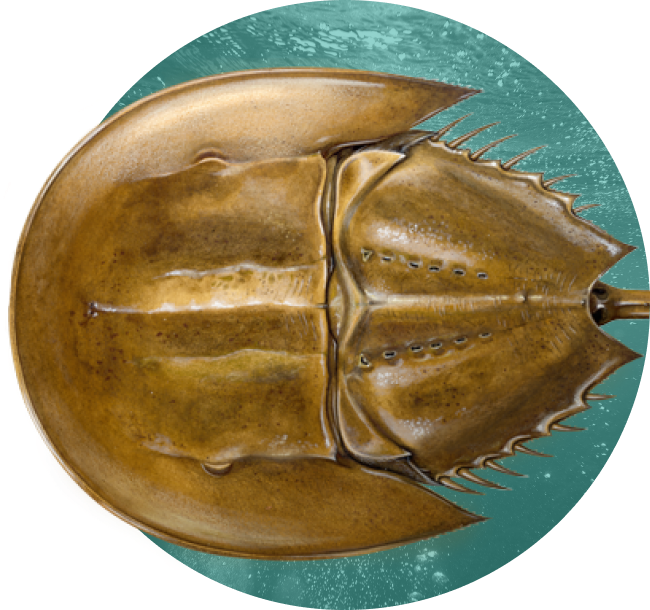Dewey Beach, DE – The Commission’s Horseshoe Crab Management Board approved bait harvest specifications for horseshoe crabs of Delaware Bay-origin. Taking into consideration the output of the Adaptative Resource Management (ARM) Framework, the Board set an annual harvest limit of 500,000 male horseshoe crabs and zero female Delaware Bay-origin horseshoe crabs for 2026 and 2027. Addendum IX was approved in May 2025 and allows the Board to set multi-year specifications for male-only harvest.
While the ARM Framework output allowed for a small amount of female harvest, the Board elected to maintain zero female horseshoe crab harvest for the next two fishing years as a conservative measure while it conducts a stakeholder engagement process to evaluate several aspects of the ARM Framework and considers changes to better align the model with stakeholder values. To make up for the lost harvest of larger female crabs, the Board agreed to increase Maryland and Virginia’s male harvest quotas with an offset ratio of 2:1 males to females. Using the allocation methodology established in Addendum VIII, the following quotas were set for New Jersey, Delaware, Maryland, and Virginia:
| Delaware Bay Origin Horseshoe Crab Quota (no. of crabs) | Total Quota* | |
| State | Male Only | Male Only |
| Delaware | 173,014 | 173,014 |
| New Jersey | 173,014 | 173,014 |
| Maryland | 132,865 | 255,980 |
| Virginia** | 21,107 | 81,331 |
*Total harvest quotas for Maryland and Virginia include crabs which are not of Delaware Bay origin.
**Virginia harvest refers to harvest east of the COLREGS line only
Under Addendum IX, the Board can maintain the harvest limit of 500,000 male horseshoe crabs through 2028 based on the 2025 ARM Framework output with no annual action required. The Board will continue to review survey data for red knots and horseshoe crabs each year and can modify the specifications before 2028 if desired. The Board also reviewed and approved changes to the Advisory Panel membership based on recommendations from the Board Work Group tasked with providing input on the appropriate distribution of advisors by region and user group, including non-traditional stakeholders. For more information, please contact Caitlin Starks, Senior Fishery Management Coordinator, at cstarks@asmfc.org or 703.842.0740.
###

